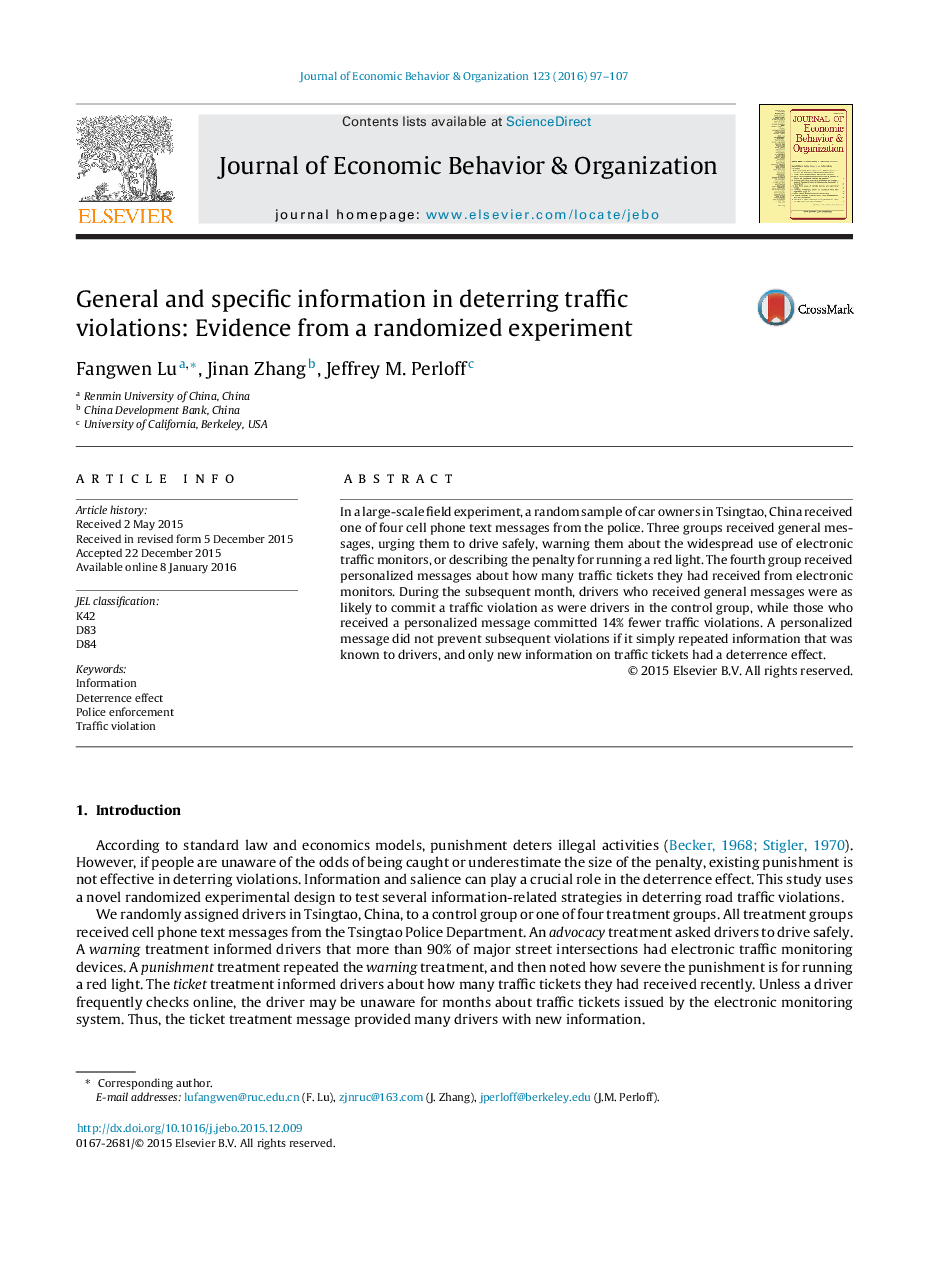| Article ID | Journal | Published Year | Pages | File Type |
|---|---|---|---|---|
| 883457 | Journal of Economic Behavior & Organization | 2016 | 11 Pages |
•Cell phone text messages were randomly sent to car owners in Tsingtao, China.•Three general-message treatments do not reduce subsequent traffic violations.•Specific messages informing drivers of own traffic tickets deter future recidivism.•The deterrence effect is short-lived and lasts for six weeks only.•This effect is not due to the message being personalized but to new information.
In a large-scale field experiment, a random sample of car owners in Tsingtao, China received one of four cell phone text messages from the police. Three groups received general messages, urging them to drive safely, warning them about the widespread use of electronic traffic monitors, or describing the penalty for running a red light. The fourth group received personalized messages about how many traffic tickets they had received from electronic monitors. During the subsequent month, drivers who received general messages were as likely to commit a traffic violation as were drivers in the control group, while those who received a personalized message committed 14% fewer traffic violations. A personalized message did not prevent subsequent violations if it simply repeated information that was known to drivers, and only new information on traffic tickets had a deterrence effect.
